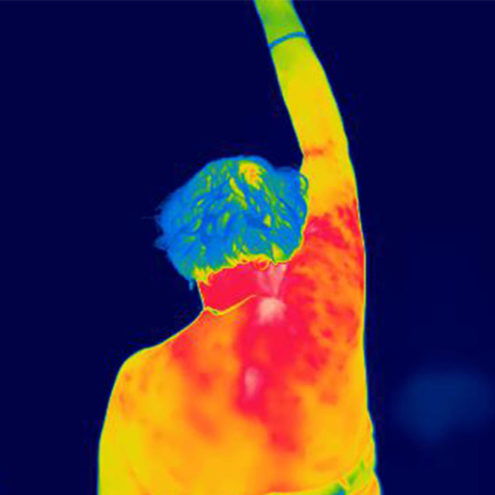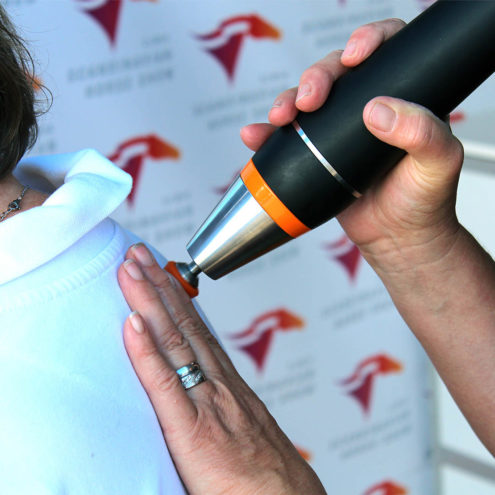Headache Every Day and Tired

Why do you experience headaches every day and feel tired?
Daily headaches combined with fatigue can be a sign of various underlying problems. It is important to identify the causes in order to manage and treat the symptoms effectively.
Possible causes of daily headaches
Stress and tension
Stress and tension are a common cause of daily headaches. When the body is exposed to constant stress, it can lead to:
Tension headaches: These headaches are characterized by a pressing, persistent pain around the head, often described as a “pressing band around the head”. Tension headaches can be aggravated by stress, anxiety and mental exertion.
Muscle tension: Stress can lead to tension in the neck and shoulders, which in turn can cause headaches. This pain can radiate up to the head and worsen the headache.
Insomnia
Sleep problems can be a contributing factor to both headaches and fatigue, especially in the absence of REM sleep:
Sleep deprivation: Insufficient sleep or poor quality sleep can lead to chronic fatigue and recurrent headaches.
Sleep apnea: A condition in which breathing repeatedly stops and then resumes during sleep. It leads to fragmented sleep and fatigue during the day.
Insomnia: Difficulty falling asleep or sleeping through the night can lead to sleep deprivation and thus increase the risk of headaches.
Anemia and nutritional deficiencies
Nutritional deficiencies and anemia can also lead to daily headaches and fatigue:
Anemia: Low hemoglobin levels in the blood can lead to insufficient oxygen supply to the brain, which can cause headaches and fatigue.
Nutritional deficiencies: Deficiencies of essential nutrients such as iron, vitamin B12 and folic acid can affect the body’s energy production and lead to fatigue and headaches.
The underlying factors of fatigue
Unbalanced diet and lack of exercise
An unhealthy lifestyle can contribute to daily fatigue and headaches:
Poor diet: A diet lacking essential nutrients and rich in sugar and processed foods can lead to lack of energy and headaches.
Lack of exercise: Regular physical activity is important to maintain energy levels and improve sleep quality. Lack of exercise can lead to fatigue and increase the risk of headaches.
Hormonal changes
Hormonal imbalances can also contribute to daily headaches and fatigue:
Menstrual cycle: Hormone changes during the menstrual cycle can cause headaches and fatigue, especially migraines.
Thyroid problems: Hypothyroidism (underactive thyroid) can lead to fatigue, headaches and other symptoms such as weight gain and depression.
Menopause: Hormone changes during menopause can cause headaches, fatigue and sleep disturbances.
Underlying medical conditions
Some medical conditions can cause daily headaches and fatigue:
Chronic Fatigue Syndrome (CFS): A condition characterized by extreme fatigue that does not improve with rest and may be aggravated by physical or mental exertion.
Fibromyalgia: A chronic pain disorder that can also cause fatigue, headaches and sleep disorders.
Depression and anxiety: Mental health conditions can cause chronic fatigue and headaches, along with other symptoms such as depression and irritability.
Symptoms of daily headaches and fatigue
Nature and intensity of the headache
Headaches can vary in character and intensity depending on the underlying cause:
Tension headache: A pressing or tightening pain around the head, often described as a band.
Migraine: Intense, pulsating pain, often on one side of the head, accompanied by nausea, vomiting and sensitivity to light.
Chronic daily headache: Headache that occurs at least 15 days per month and lasts for more than three months.
The impact of fatigue on daily activities
Fatigue can affect your ability to perform daily activities:
Impaired concentration: Difficulty focusing on work tasks or studies.
Low energy: feeling exhausted and listless for most of the day.
Reduced productivity: Reduced work capacity and efficiency.
Other related symptoms and disorders
Daily headaches and fatigue may be accompanied by other symptoms, depending on the cause:
Muscle pain and stiffness: Common in fibromyalgia and chronic fatigue syndrome.
Mood changes: Depression, irritability and anxiety may occur along with fatigue and headaches.
Sleep disorders: difficulty falling asleep, waking up at night or not feeling tired after sleep.
Treatment for daily fatigue and headaches?
Managing and treating daily headaches and fatigue requires a comprehensive approach that takes into account both symptoms and underlying causes.
Diagnostics
A thorough diagnostic evaluation is necessary to identify the causes of your symptoms. This may include:
Medical history: a detailed review of your symptoms, past illnesses and lifestyle factors.
Physical examination: assessment of general health, neurological status and any specific findings related to headache and fatigue.
Laboratory tests: Blood tests to check for anemia, thyroid function, nutritional deficiencies and other potential problems.
Imaging: MRI or CT scans may be necessary to rule out structural problems in the brain or sinuses.
Treatment options
Depending on the diagnosis, different treatment methods can be used:
Medication: painkillers, anti-inflammatory drugs, antidepressants or other specific medications depending on the cause.
Physiotherapy: Treatments to relieve muscle tension and improve posture, which can help reduce tension headaches.
Psychotherapy: Counseling or cognitive-behavioral therapy (CBT) can help manage stress, anxiety and depression.
Lifestyle changes: advice on diet, exercise and sleep habits to improve overall health and reduce symptoms.
Self-care and prevention
Taking care of your own health and making lifestyle changes can help manage and prevent daily headaches and fatigue:
Stress management: Use relaxation techniques such as meditation, deep breathing and yoga to reduce stress and muscle tension.
Sleep hygiene: Establish regular sleep habits, create a relaxing sleeping environment and avoid stimulants such as caffeine and nicotine. Do not use computers or cell phones one hour before bedtime.
Healthy diet: Eat a balanced diet rich in nutrients and avoid processed foods and sugar.
Regular exercise: Exercise regularly to improve energy levels, reduce stress and improve sleep quality.
Hydration: Drink enough water to avoid dehydration, which can contribute to headaches and fatigue.
Regular monitoring
Regular follow-up with a doctor may be necessary to monitor your symptoms and adjust the treatment plan if necessary.
 Search
Search
































